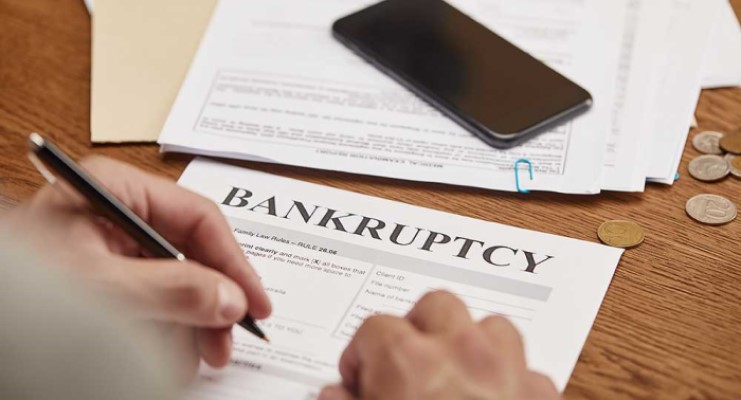If you are facing a financial crisis, it can be a very stressful and overwhelming experience. If you live in Staten Island, New York, you may wonder what your options are and how to find the right bankruptcy attorney to help you. In this article, we will cover everything you need to know about bankruptcy attorneys in Staten Island.
What is Bankruptcy?
Bankruptcy is a legal process that allows individuals or businesses to eliminate or repay their debts under the protection of the bankruptcy court. It is a way for people to get a fresh financial start.
Types of Bankruptcy
There are several types of bankruptcy, including Chapter 7, Chapter 11, and Chapter 13. Each type has its unique features and requirements.
Chapter 7 Bankruptcy
Chapter 7 bankruptcy is also known as “liquidation” bankruptcy. It is the most common type of bankruptcy for individuals. In Chapter 7 bankruptcy, a trustee is appointed to sell your non-exempt assets and use the proceeds to pay your creditors. Most unsecured debts, such as credit card debt and medical bills, can be discharged in Chapter 7 bankruptcy.
Chapter 11 Bankruptcy
Chapter 11 bankruptcy is commonly used by businesses that want to reorganize their debts and continue operating. In Chapter 11 bankruptcy, a business can continue to work while it develops a plan to repay its creditors.
Chapter 13 Bankruptcy
Chapter 13 bankruptcy is a reorganization plan for individuals with a regular income. In Chapter 13 bankruptcy, you will work with a trustee to create a repayment plan to pay off your debts over three to five years.
Why Hire a Bankruptcy Attorney?
While it is possible to file for bankruptcy independently, hiring a bankruptcy attorney can make the process much easier and less stressful. A bankruptcy attorney can help you understand the process, advise which type of bankruptcy is best for you, and help you navigate the complex legal system.
How to Choose a Bankruptcy Attorney in Staten Island
When choosing a bankruptcy attorney in Staten Island, there are several things to consider.
Experience
It is essential to choose an attorney who has experience in bankruptcy law. Look for an attorney who has successfully handled cases similar to yours.
Communication
Your attorney should be someone who is easy to communicate with and who will keep you informed throughout the process.
Fees
Bankruptcy attorneys typically charge a flat fee for their services. Make sure you understand what is included in the fee and whether there are any additional costs.
Reviews
Check online reviews and ratings to see what other clients say about the attorney.
What to Expect During the Bankruptcy Process
The bankruptcy process can be complex and time-consuming. Here is a brief overview of what to expect:
Pre-Filing Requirements
Before filing for bankruptcy, you must complete a credit counseling course and gather your financial documents.
Filing for Bankruptcy
Once you have completed the pre-filing requirements, your attorney will file the bankruptcy petition with the court.
The Automatic Stay
When you file for bankruptcy, an automatic stay goes into effect. Your creditors must stop all collection efforts, including phone calls, letters, and lawsuits.
Meeting of Creditors
About a month after you file for bankruptcy, you will attend a meeting of creditors. This is a meeting where you will answer questions under oath about your financial situation.
Discharge
If everything goes smoothly, you will receive a discharge order from the court, which will eliminate your debts.
FAQs
How long does the bankruptcy process take?
The length of the bankruptcy process varies depending on the type of bankruptcy you file for and the complexity of your case. Chapter 7 bankruptcy typically takes three to six months to complete, while Chapter 13 bankruptcy can take three to five years.
Will I lose all of my assets if I file for bankruptcy?
No, not necessarily. Each state has different exemptions that can protect certain assets from being sold in bankruptcy. Additionally, some debts may be “secured,” meaning they are tied to a specific asset, such as a car or house. In some cases, you can keep those assets by making payments.
Will bankruptcy ruin my credit forever?
No, although bankruptcy will remain on your credit report for several years, it is possible to rebuild your credit over time. Their credit scores improve after filing for bankruptcy because they can eliminate their debts and start fresh.
Can I file for bankruptcy more than once?
Yes, filing for bankruptcy more than once is possible, but there are certain limitations. If you previously filed for Chapter 7 bankruptcy, you must wait eight years before filing again. If you previously filed for Chapter 13 bankruptcy, you must wait two years before filing again.
Can I keep my home if I file for bankruptcy?
In many cases, yes. If you are current on your mortgage payments, you can keep your home by continuing to make your payments. You can catch up through a Chapter 13 repayment plan if you are behind on your payments. Your bankruptcy attorney can advise you on the best course of action for your specific situation.
Conclusion
If you are struggling with debt and considering bankruptcy, it is essential to understand your options and seek the help of a qualified bankruptcy attorney. By choosing an attorney with experience in bankruptcy law, you can confidently navigate the complex legal system and get the fresh financial start you need. Don’t wait – take the first step towards a brighter financial future today.

